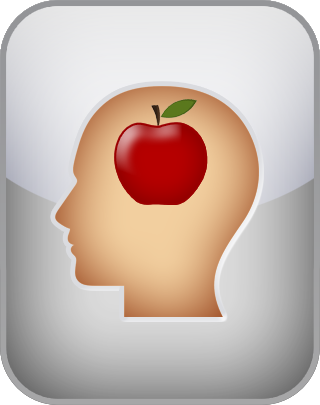Academically reviewed by Dr. Sabina Alispahić, Ph.D., professor of psychology
Aphantasia Test
Aphantasia is a condition characterized by the inability to visualize mental images. People with aphantasia cannot conjure up images in their mind's eye, meaning they cannot mentally picture objects, people, or scenes. While most people can visualize things, those with aphantasia experience a lack of this ability.
This condition can vary in severity, with some individuals completely unable to visualize anything, while others may have partial visualization abilities. Aphantasia was first described in the scientific literature in 1880 but has gained more attention in recent years as researchers and individuals have become more aware of its existence.
Are you showing signs of aphantasia? For each of the following questions, indicate how well it applies to you.
Question 1 of 15
I can clearly imagine what a sports car looks like.
| Disagree | Agree |
NEXT
The IDRlabs Aphantasia Test was based on David Marks’ Vividness of Visual Imagery Questionnaire (VVIQ).
Put together, "aphantasia" essentially means "without imagination" or "lack of mental imagery." The term was first coined by neurologist Adam Zeman and his colleagues in a 2015 paper published in the journal Cortex, where they explored the phenomenon and its implications. Individuals with aphantasia cannot visualize objects, people, or scenes, even if they try to summon a mental image. This lack of mental imagery distinguishes aphantasia from other conditions involving imagination or visualization. Despite its recent recognition, aphantasia remains an under-researched area, leaving many aspects of its impact and prevalence unknown.
The experiences of individuals with aphantasia vary significantly. Some may discover their condition only when they realize that others can visualize things internally. For these individuals, tasks that rely on visualization, such as recalling faces or scenes, might rely more heavily on other senses or forms of memory. Some people with aphantasia report that they compensate by using verbal or logical strategies instead of visualizing information. This adaptive approach can affect their learning styles, with a preference for descriptive, auditory, or kinesthetic information over visual cues.
The implications of aphantasia extend beyond simple visualization. Research suggests that the inability to form mental images can influence several cognitive functions, including memory, imagination, and dreaming. People with aphantasia often have intact memory functions, but they might rely more on factual or narrative memory rather than pictorial recall. Additionally, some individuals with aphantasia report reduced vividness in their dreams, though they might still dream in some form. These findings indicate that while aphantasia affects visualization, it does not necessarily impair overall cognitive ability.
Aphantasia can influence creative and professional endeavors in unique ways. For example, artists or designers with aphantasia might rely more on physical references or trial-and-error methods rather than previsualizing their creations. Similarly, individuals in professions requiring spatial reasoning or visualization, such as architects or engineers, might use alternative techniques to achieve their goals. Despite these differences, many people with aphantasia excel in their fields, demonstrating that creativity and success do not solely depend on mental imagery.
Understanding aphantasia also involves exploring its neurological underpinnings. Studies using functional MRI (fMRI) and other neuroimaging techniques have begun to identify differences in brain activity patterns between those with and without aphantasia. For instance, the visual cortex and related areas involved in imagery and visualization may exhibit different activation levels in individuals with aphantasia. These insights could help elucidate how the brain processes imagination and the sensory experiences associated with it, offering broader implications for neuroscience.
Despite the challenges, individuals with aphantasia often lead fulfilling lives and adapt to their unique cognitive profiles. Raising awareness about aphantasia can help foster a better understanding and acceptance of cognitive diversity. Future research aims to uncover more about the prevalence, causes, and adaptive strategies related to aphantasia. By exploring this condition further, scientists can gain deeper insights into the complexities of human imagination, perception, and memory, ultimately enriching our understanding of the human mind.
As the publishers of this free test, which allows you to screen yourself for the characteristics of aphantasia, we have strived to make the test as reliable and valid as possible by subjecting this test to statistical controls and validation. However, free online quizzes such as the present test do not provide professional assessments or recommendations of any kind; the test is provided entirely “as-is.” For more information about any of our online tests and quizzes, please consult our Terms of Service.

